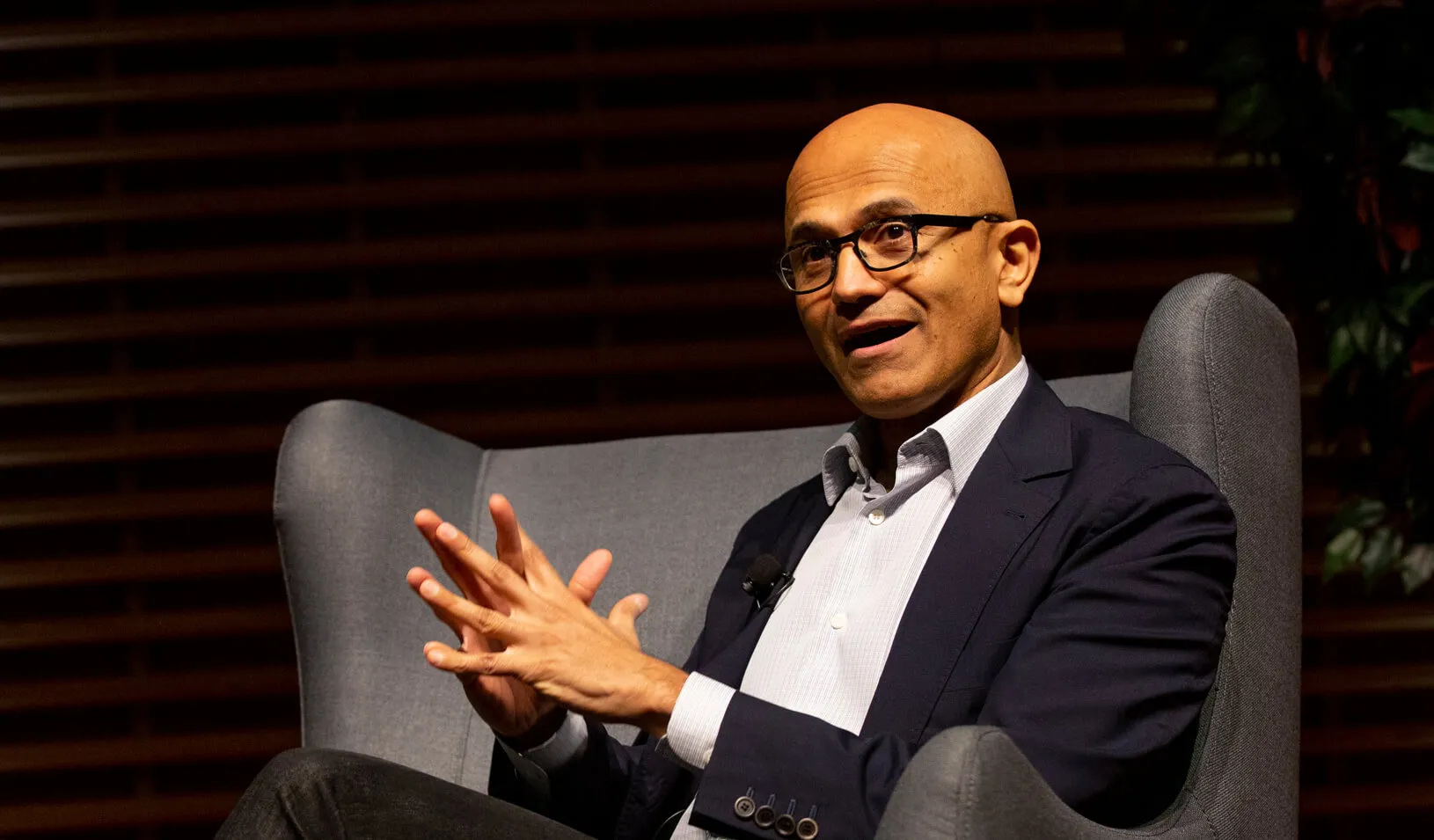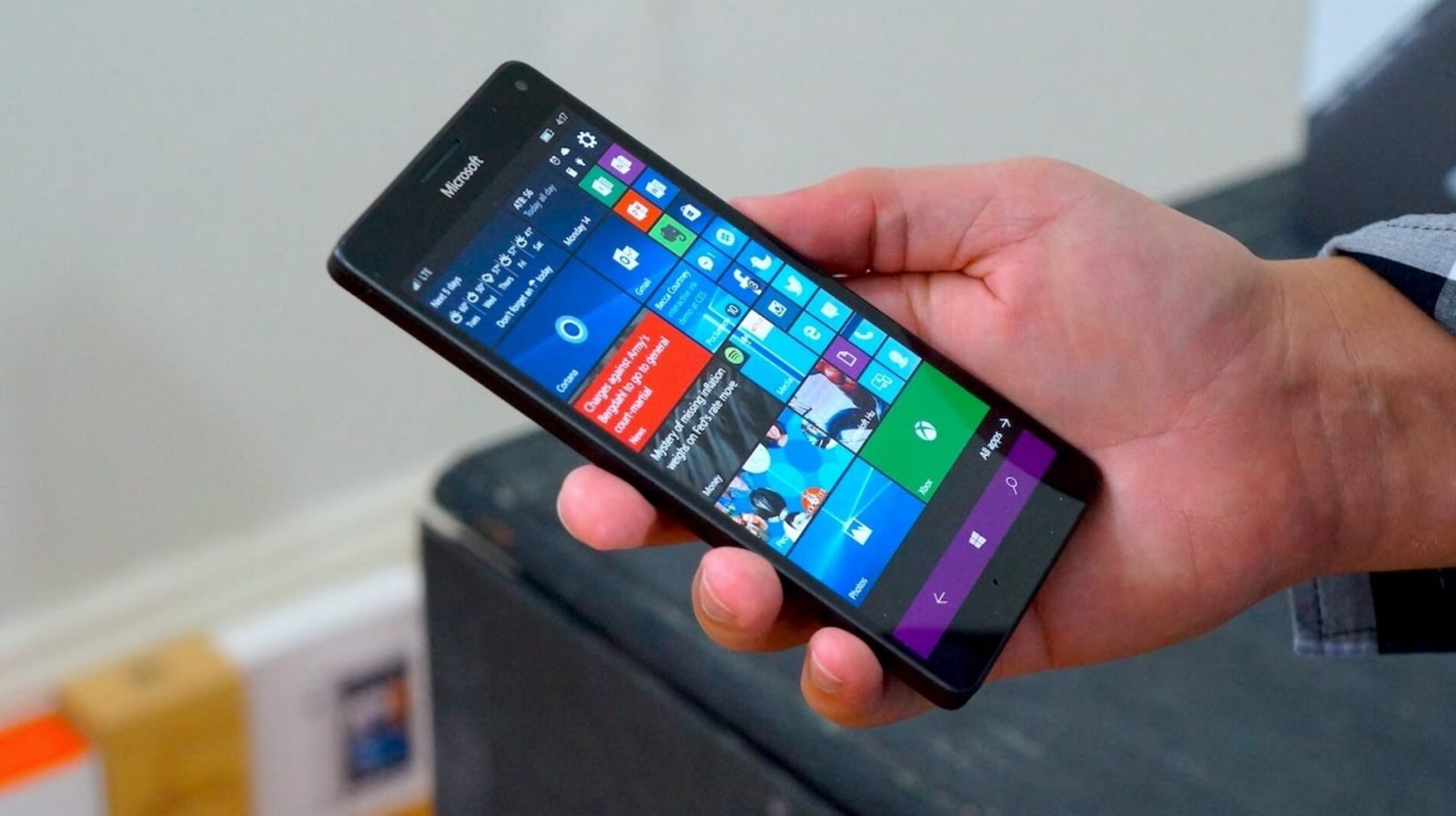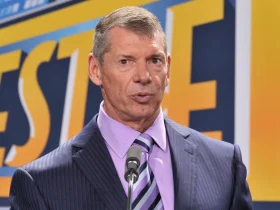Mathias Döpfner, CEO of the German publishing giant Axel Springer, recently sat down with Microsoft CEO Satya Nadella for what was billed as a “wide-ranging interview.”
However, the conversation turned out to be anything but that. Instead, it featured one billionaire CEO (Döpfner) tossing easy, unchallenging questions to another billionaire CEO (Nadella) of the trillion-dollar corporation, Microsoft.
For instance, consider the following exchange from the interview:
Döpfner: “Is there any kind of real strategic mistake or just wrong decision that you regret in retrospect?”
Nadella: “The decision I think a lot of people talk about – and one of the most difficult decisions I made when I became CEO – was our exit of what I’ll call the mobile phone as defined then.
In retrospect, I think there could have been ways we could have made it work by perhaps reinventing the category of computing between PCs, tablets, and phones.”
This response from Nadella naturally begs a series of follow-up questions, none of which Döpfner asked. Some of these questions could include:
“What exactly do you mean by ‘reinventing the category of computing between PCs, tablets, and phones’? Can you elaborate?”
“How would this reinvention have made the Windows Phone ecosystem sustainable?”
“You mentioned ‘the mobile phone as defined then,’ referencing 2014 when you became CEO. Can you clarify how modern mobile devices differ from those of that time?”
“Do you realize how many passionate Windows Phone fans will likely reach out, urging you to revive that product line?”
That last question might seem humorous, but it’s worth noting how fervent the Windows Phone community remains, and this latest discussion of Microsoft’s failed mobile efforts is likely to rekindle their passion.
Nadella’s comments in this interview represent a shift from his previous stance. In his 2017 book Hit Refresh, he defended the decision to exit the mobile phone business, explaining that in 2013, Microsoft was “desperate to catch up after missing the rise of mobile technology.”
As a member of Steve Ballmer’s management team, Nadella had voted against Microsoft’s acquisition of Nokia, a deal that was ultimately approved. Reflecting on this in his book, he wrote:
“I voted no. While I respected Steve and understood the logic of growing our market share to build a credible third ecosystem, I did not see why the world needed a third ecosystem in phones unless we changed the rules.”

After Nadella became CEO, Microsoft worked to relaunch Windows Phone with new devices and a fresh operating system, but it was too late to regain lost ground.
The platform struggled, and Nadella eventually had to announce a total write-off of the Nokia acquisition, along with plans to eliminate nearly 18,000 jobs.
In hindsight, this decision appears to be the right one. Establishing a third mobile ecosystem proved impossible, largely because developers saw little reason to invest in a platform outside the dominant ecosystems of iPhone and Android. No combination of incentives could change that.
Moreover, it’s difficult to imagine any form of “reinvention” that could have revived the Windows Phone platform. Being the third option is a tough position, as evidenced by Google’s cloud business, which lags far behind Amazon’s AWS and Microsoft’s Azure without any sign of catching up.
While Microsoft has made some strides in expanding its Office franchise to mobile devices, it remains at the mercy of iOS and Android platforms. This means paying fees to Apple and Google and contending with their ability to set default apps and services.
Microsoft’s attempts to establish a presence in the Android ecosystem have also seen mixed results. The dual-screen Surface Duo received lukewarm reviews, and an upgraded version fared little better, with the product line appearing to be on the verge of discontinuation.
Although it’s technically possible to transform a stock Android phone into a “Microsoft phone” by using the Microsoft Launcher and other apps like Edge and Phone Link, Microsoft doesn’t heavily promote this approach, likely because the adoption rate is minimal. The power of default settings is difficult to overcome.
Given the recent developments in Microsoft’s Surface division, including the departure of longtime leader Panos Panay, it’s unlikely that Microsoft will expand its mobile hardware platform in the coming years.
During his interview with Döpfner, Nadella made it clear that the company is focusing its efforts on AI-related projects.
In light of Microsoft’s AI push, I decided to ask Bing a follow-up question that Döpfner might have missed:
“Please answer the following question from Satya Nadella’s perspective: What do you mean by ‘reinventing the category of computing between PCs, tablets, and phones’? Can you elaborate?”
“According to several web sources, by ‘reinventing the category of computing between PCs, tablets, and phones,’ Satya Nadella means that Microsoft could have created a new kind of device that would combine the best features of all three platforms and offer a unique user experience.
He regrets that Microsoft exited the mobile phone business too soon and missed the opportunity to innovate in this space.”
This response sounds intriguing, but it’s likely a case of Bing generating an overly optimistic interpretation. The idea of a new type of device is interesting, but it’s hard to imagine Windows Phone making a comeback in the AI era.







Leave a Reply